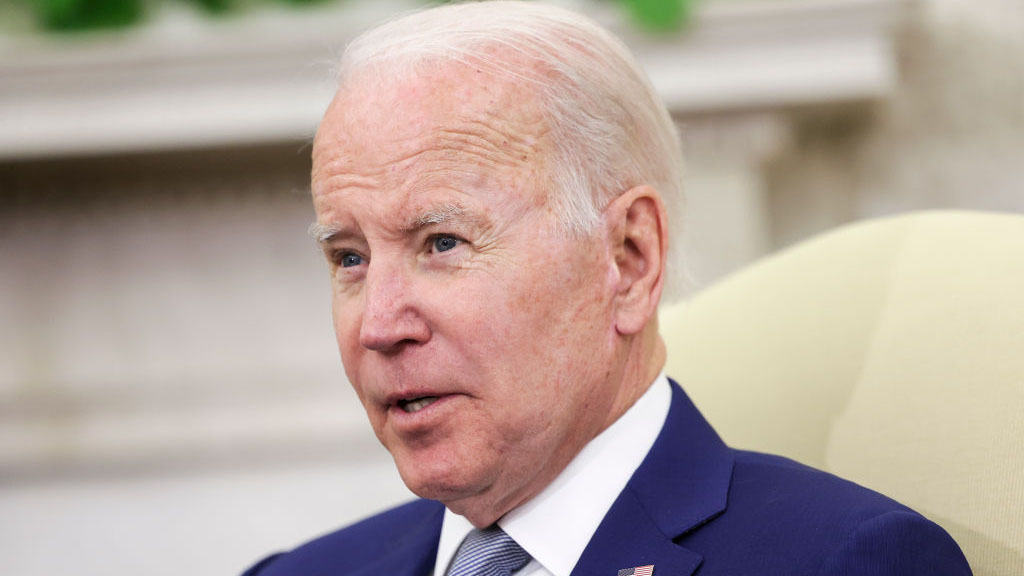President Joe Biden said this week that the COVID-19 pandemic is "over," but Boston doctors and Massachusetts public health data say otherwise.
Biden's statement aired in an interview Sunday on “60 Minutes,” sparking a national debate among politicians and health experts. Boston doctors argue that the COVID-19 pandemic is still very much active, based on the definition of the word and Massachusetts COVID data, and emphasized that the government still has an important role to play in addressing it.
"I don't take my public health guidance and facts from politicians. So, you know, I actually didn't put much stock into that statement," Tufts Medical Center's Dr. Shira Doron said. "But of course, it made me think about the question that I've thought about many times throughout the last six months, which is, how do we know, when do we decide that that pandemic is over?"
The definition of pandemic, Doron said, citing the dictionary written by epidemiologists, is an epidemic occurring worldwide or over a very wide area, crossing international borders and usually affecting a large number of people. An epidemic is more local, a widespread occurrence of an infectious disease in a community at a particular time.
Get Boston local news, weather forecasts, lifestyle and entertainment stories to your inbox. Sign up for NBC Boston’s newsletters.
"According to those very classic definitions, we are still in a pandemic and will be for a very, very long time," Doron said.
She called it a matter of semantics: "Health care is going to have to be dealing with COVID-19 for a very long time. Public health officials are going to be dealing with it for a very long time. We're going to have expectations that our government fund our interventions and support our interventions with resources for a very long time. From those standpoints, you know, it's not over and it won't be over for years or decades, even."
I don't take my public health guidance and facts from politicians.
Dr. Shira Doron, Tufts Medical Center hospital epidemiologist
Brigham and Women's Chief of Infectious Diseases Dr. Daniel Kuritzkes echoed Doron, adding that the definitions of epidemic, pandemic and endemic are "clearly very blurry." Since case numbers across the U.S. are somewhat constant, Kuritzkes argued that COVID-19 is at least in an endemic phase, but that doesn't mean the virus has gone away.
"I think this is largely a semantic argument, or debate that has only some practical significance," Kuritzkes said. "I think the biggest practical issue, and where I think the president may have inadvertently caused himself unnecessary trouble, is that what we do desperately still need is emergency funding from Congress to be able to continue to pay for testing, vaccination and treatment."
COVID Cases Massachusetts
The Massachusetts Department of Public Health's COVID-19 dashboard shows that cases and hospitalizations have hit a plateau since coming down from the omicron surge in February, then another peak in May, the doctors said.
"Now we're just hovering at this high plateau that is just so annoying, to be honest," Doron said. "And the wastewater, which is a more accurate measure of what is going on with the virus, because cases by and large are not getting reported to the state, is also just stuck, just really stuck at a high level. So there's a lot of COVID out there. There's definitely a lot of COVID."
Massachusetts health officials reported 7,936 new COVID-19 cases and 37 new deaths in the last week, according to the most recent data. In total, there have been 1,860,512 cases and 20,206 deaths since the start of the coronavirus pandemic.
There's been a steady stream of COVID-19 cases at Brigham and Women's Hospital as well, according to Kuritzkes, with between 20 and 30 people on the regular medical floors and between two and six people in the ICU every day since May.
"I don't think I've really seen any significant change since May," Kuritzkes said. "Now in some respects, that's kind of interesting in and of itself. Obviously, things are not going down, and that's what we would like to see if we're stuck at a level much higher than where we were June 2021. But it's also becoming more and more interesting now that we're at the end of September that it's been, what, five months since we've had a new variant? Maybe you need to knock on wood or something."
More on COVID-19
Get updates on what's happening in Boston to your inbox. Sign up for our News Headlines newsletter.



